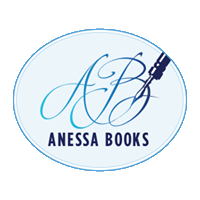 Are you an imposter? Or do you worry that you might be one? If so, you’re not alone.
Are you an imposter? Or do you worry that you might be one? If so, you’re not alone.
There’s been a lot of talk recently about imposter syndrome because it affects so many incredibly talented and intelligent people, and yes, you might be one of them.
Last week we talked about ways to get words flowing again when you’ve got writer’s block. But if none of the easy fixes I suggested work for you, it could be that you simply don’t believe that you have what it takes to be a writer, and that’s why you can’t write.
It doesn’t matter if you’ve been writing for a year or ten years. It doesn’t matter if you’re entirely new to this endeavor or if you’ve got twenty books published and a new contract with one of the big New York publishers. If your brain has suddenly decided that you’re not qualified, it could very well be stopping you from producing those words and writing that book.
So let’s look at a imposter syndrome more closely.
It’s actually not one thing. There are a number of different variations, of types of imposter syndrome, as outlined by Valerie Young in her book, Secrets of Successful Women.
- The Perfectionist: If you’re not perfect, you’re a failure, so goes the thinking of the perfectionist. They believe that if they can’t achieve perfection with their writing, it’s not even worth trying.
The perfectionist may start writing a book, and then before they even start on chapter 2, they’re going back and fixing chapter 1. But it’s not perfect, so they fix it again, and again, and again. A year has gone by and they are still working on chapter 1.
According to Young: “Half-ass is better than no ass.” In other words, you’re never going to reach perfection so stop trying. Accept that what you write is not going to be perfect and that good enough really is good enough.
- The Natural Genius: Some people believe that in order to be a good writer, you should be able to simply write—no classes, no learning necessary. You’ve read plenty of books in your life. You know how a story works. Open up your laptop and create one. Boom!
Sadly, it doesn’t work that way. There are almost no natural-born writers. In order to write a book (short story or screen play), you need to learn how to do it. There are thousands of books and plenty of course on how to write. Take one or two. Learn how to do it because no (least of all you) should expect you to know how to do it without studying.
- The Expert: Are you writing a historical novel? Have you done your research? Do you know absolutely everything there is to know about your time period? What about murder, if you’re writing a murder mystery? Have you thoroughly studied how to kill someone and get away with it? Have you started doing some research for you book and then never stopped? Then you are “The Expert”.
They don’t stop researching because they never know enough. That book they’re writing is never going to get written because there’s always more research that needs to be done.
Stop.
Just stop researching because unless you are writing non-fiction, your readers aren’t going to expect every minute detail to be completely 100% accurate. You are writing FICTION. Make stuff up! (And then tell your readers in your author’s note what’s real and what’s not.)
- The Rugged Individualist: “If I were really competent, I’d be able to do this entirely on my own.” That’s how this person thinks. The problem is, it’s not true, and especially not for “self”-publishing.
We do call it self-publishing, but in fact, it takes a team of people to put together a book to be published. You are the writer, you create the content, but a professional editor needs to read it and comment on it and make sure your writing is good and clear. A proofreader is needed to make sure you have as few typos and grammatical mistakes as possible (zero is not really realistic, but very few is preferable). You need an artist or designer to create your cover, a formatter to put it all together into a publishable book, and maybe a marketing expert to guide you in your efforts to sell your completed product. We call it self-publishing, but it’s not and you shouldn’t expect to be able to do it all on your own.
- Superman/woman: They think they can do it all. They are the perfectionist, the natural genius and the rugged individualist all mashed together and on steroids. Just say no to this because it’s simply not possible, believe me, I know, I’ve tried. 😊
So, there we have it, the imposter syndrome and what might be holding you back from getting those words down on the page. As Young points out in her wonderful, enlightening book, the “no-talent police” are not going to come and get you if you try to write a book.
Be strong. Be realistic. Know that you are good enough and can do this. You just have to set aside your fears and get to work.
